This post was published on June 21 2010 while on my journey to South African Olympic Trials and the 2012 Olympic team.
Have you ever heard of sensory compensation?
Until 2 weeks ago, I hadn’t. But there are a bunch of studies that prove the phenomenon.
At it’s most basic form, sensory compensation works like this:
Lets image you loses one of your senses, like your sight. Once you’ve lost the sense, you brain finds a way to compensate. It does this by heightening one of the other sense. Ten years ago this idea was unproven in scientific circles. Today it’s widely accepted.
So, what did Coach Kevin decide to do with the first training cycle of the summer?
Make us swim with a blind fold on! Only kidding, but it feels like it!
For the two weeks of training there has been no swim watch or clocks on our pool deck. None, nada, zip, zero, nothing.
We’ve had no feedback on how fast you are swimming. No swim watch to give us a send off time… Fast practice, slow practice, no clue?!
Why the madness Kevin?
The idea runs along the line of sensory compensation. By removing the clocks from the pool deck are forced to compensate, shifting our focus to other areas.
To swim fast, you have to get so many things right. Little details can make a big difference. But these sometimes get ignored in workouts that center around send offs and goal times.
When we enter into the technique portion of our work outs the pace is low and controlled. Time is often not taken into consideration and isn’t usually the focus. It’s great that we are developing our technique, mastering the finer points of the stroke. The problem is you NEVER race at a medium pace, you race as fast as you can!
When we swim test sets in practice – ones that most resemble race pace, the focus is usually on the clock. The goal is not to forget about technique, but you end up more concerned with time. The coaches are watching the splits and the swimmers are working towards a goal time. We aim for speed and toughness.
During these sets you’ll get tidbits of technical advice. “Maintaining your posture!”. “Kick off your walls”. But those instructions can get lost with a look at the swim watch and the bark of “FASTER, DESCEND, HARDER, MORE”.
When this no-clock news was first mentioned to the team last Monday, I was very doubtful. I felt that swimming was all about the clock. It’s all about the pace you hold, the send off you go on. If you don’t have the clock you can’t push the pace; if you don’t push the pace you can’t get faster. The clock indicates how well you are doing. You can’t train without a clock!
Two weeks later I am changing my mind.
One thing is for sure – the pace has not dropped. If anything, it has increased. I’m pretty sure the intervals we are pushing off on have decreased too. It sounds odd, but I’m now asking the clock, was limiting us? Is that possible?
Despite it feeling like we’re swimming faster, the focus on technique has improved. The coaches are spending far more time giving stroke feedback. And we seem be absorbing a lot more of it than usual. Kevin’s idea is working!
We have one more week left in this cycle before the clocks come back. It is going to be interesting to see where we are at when the clocks get turned on again. It’s also going to be interesting to see if we are able to maintain the technique improvements we have made.
I’m pretty sure that this exercise has not been a waste of time. I am sure that I will be a better swimmer at the end of this cycle, all thanks to Kevin’s creative genius.

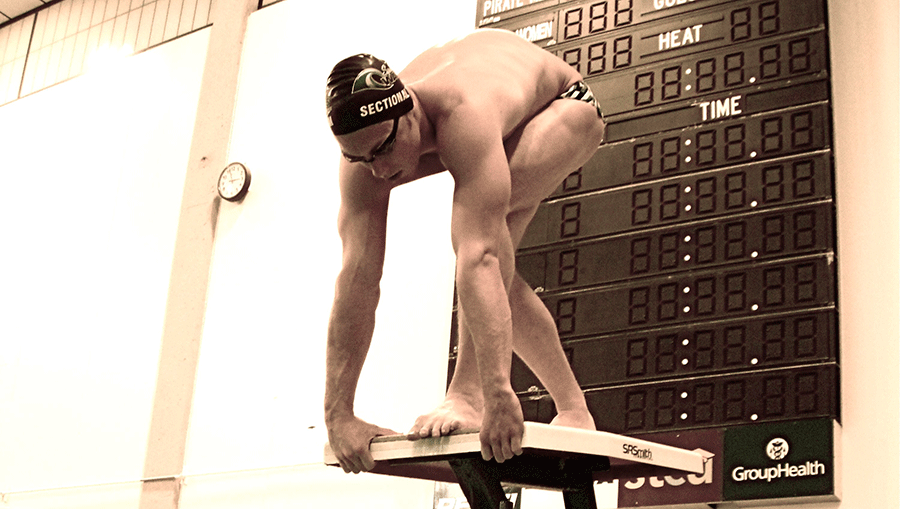
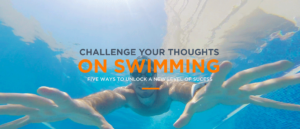
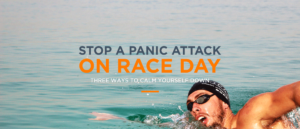
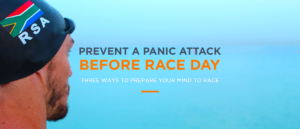
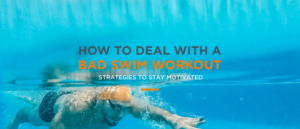
3 thoughts on “Stop Using A Swim Watch; How I Got Faster With Better Technique Swimming Blind”
This is awesome! I’ve never heard of anything like this really before and I like the concept. I think I’m going to talk to my club teams coach about trying something out like this at some point this summer.
I am really impressed with how compact and efficient you looked in the water this weekend. Kevin obviously knows what he is doing because I haven’t seen you swim like that ever before! Great job Kevin and Waves blind swimmers 🙂
It is always amazing to look back and see how we question things we do. I still remember you telling me about this and how skeptical you were. I ‘think’ I can see the genious in this and how it can help…but only time will tell.
Great post!